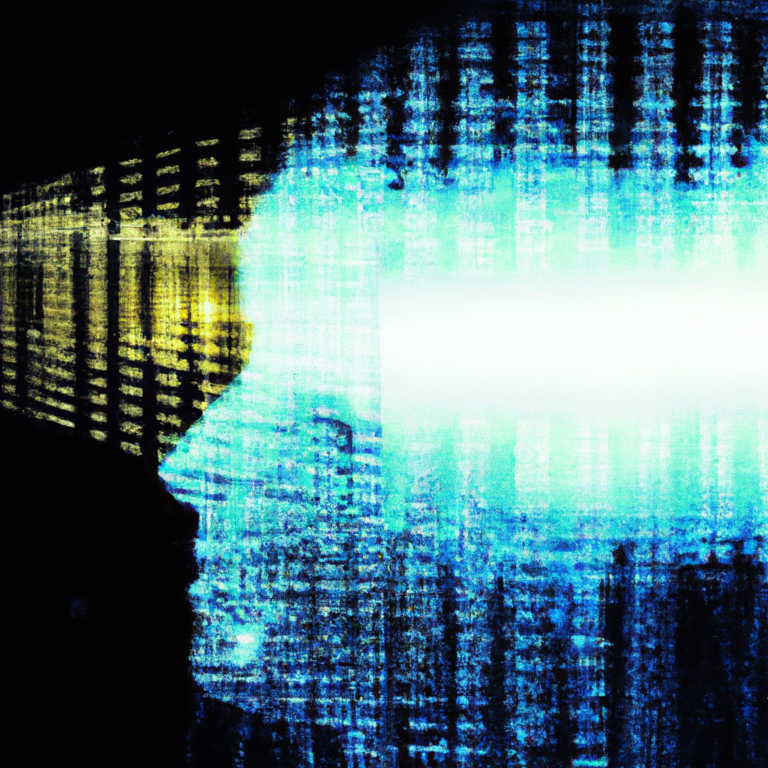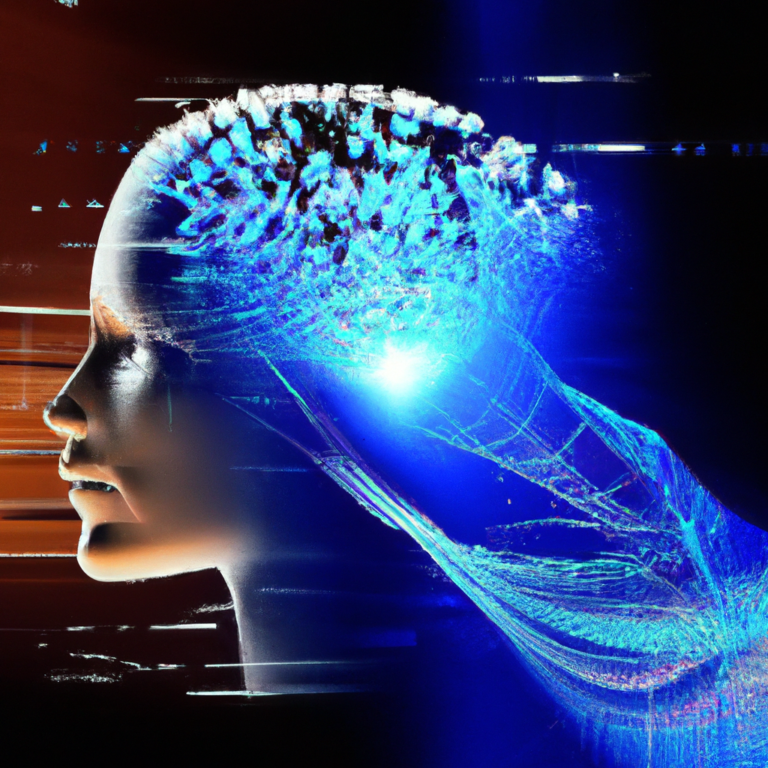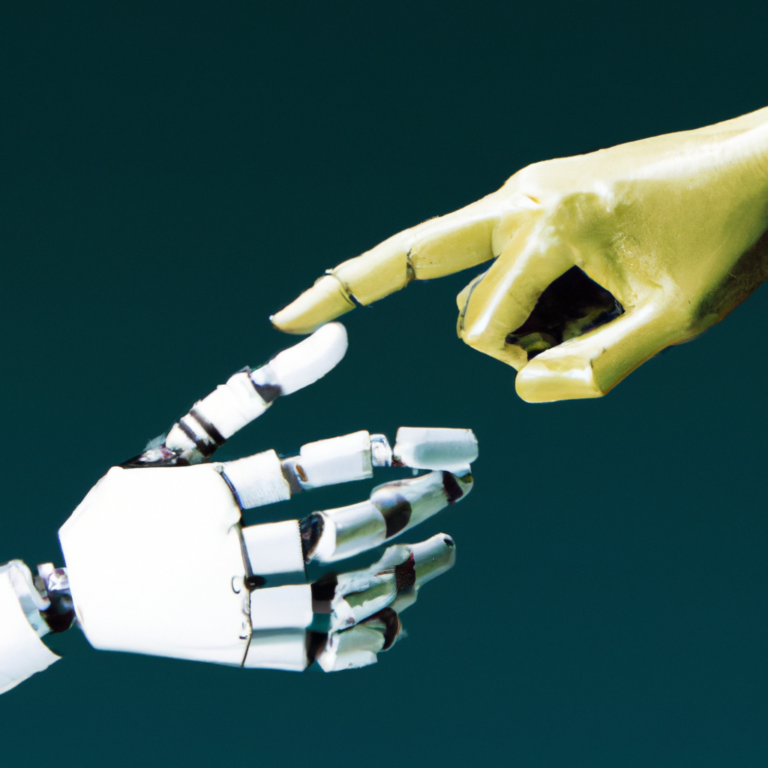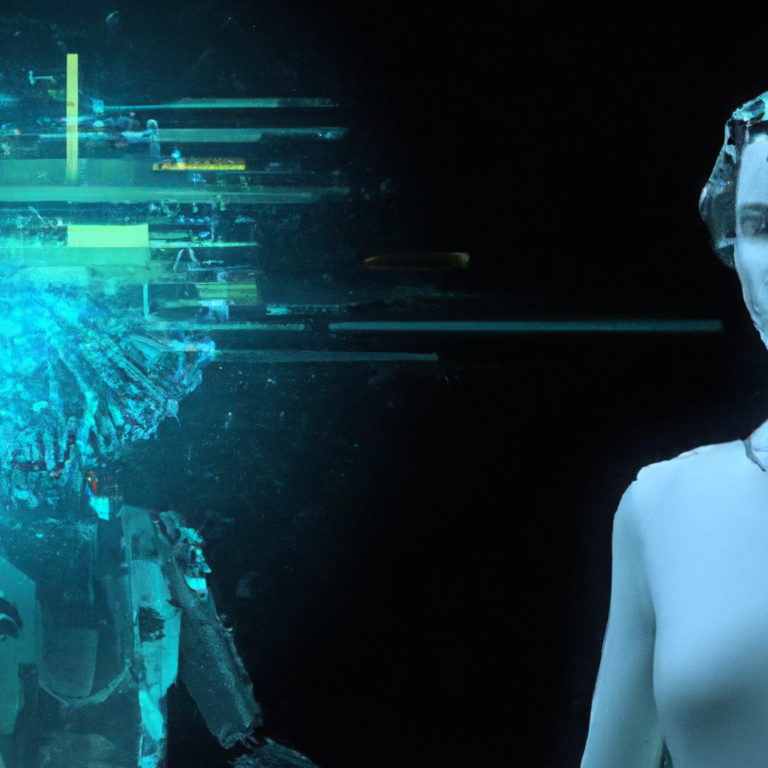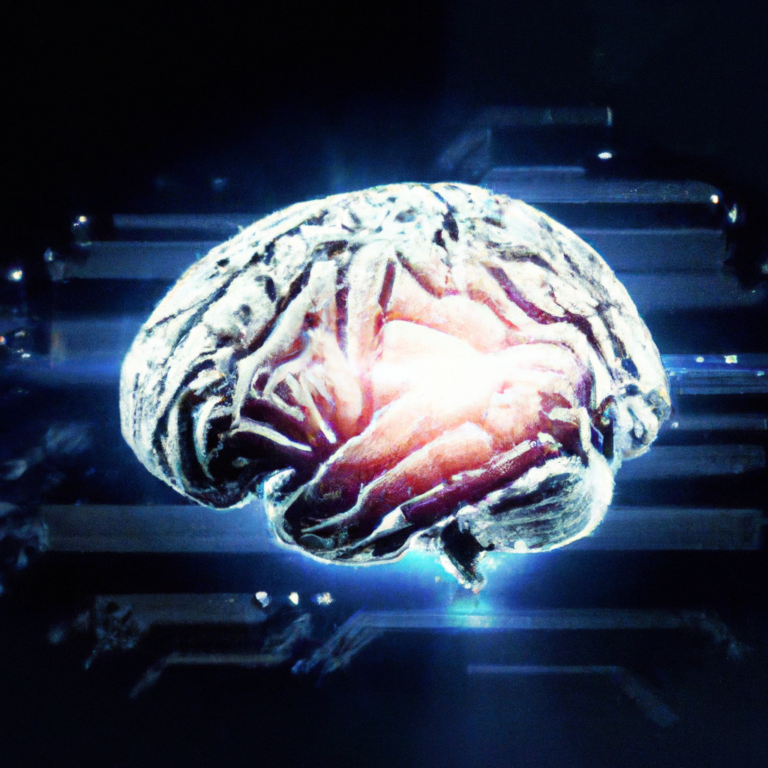The Social Impact Of AI

Imagine a world where machines think and learn like humans, carrying out complex tasks with efficiency and accuracy. Artificial Intelligence (AI) has revolutionized various aspects of our lives, from the way we communicate to the industries we work in. But beyond its technical prowess, the social impact of AI has become a subject of intrigue and concern. As we witness the rapid advancements of this technology, it is imperative to understand how AI is reshaping our society, influencing our interactions, and raising important questions about ethics and responsibility.

Ethical Considerations
Privacy and data protection
AI technology has brought about significant advancements in society, but it has also raised concerns regarding privacy and data protection. With the ability to collect and analyze vast amounts of personal data, there is a risk of this information being misused or falling into the wrong hands. It is important to establish stringent regulations and practices to ensure that individuals’ privacy rights are maintained while still reaping the benefits of AI.
Job displacement and unemployment
The automation of industries has the potential to greatly impact the job market by displacing human workers. As AI systems become more sophisticated, many routine and repetitive tasks can be performed more efficiently by machines. While this may lead to increased productivity and reduced costs for businesses, it also raises concerns about unemployment rates and the need for retraining workers to adapt to the changing job landscape.
Bias and discrimination
AI algorithms are only as unbiased as the data they are trained on. If the data used to train AI systems is biased or contains discriminatory patterns, it can perpetuate those biases in decision-making processes. This can have profound implications in areas such as hiring practices, criminal justice, and loan approvals, where AI algorithms may inadvertently perpetuate existing biases. It is crucial to address these issues and ensure that AI systems are designed and trained in a way that promotes fairness and equal treatment for all.
Concentration of power
The development and deployment of AI systems have the potential to concentrate power in the hands of a few. Companies that possess vast amounts of data and advanced AI capabilities can leverage these resources to gain a competitive advantage and influence various aspects of society. This concentration of power could result in a lack of competition, limited choices for consumers, and a reduction in social welfare. It is necessary to strike a balance between innovation and market control to prevent undue concentration of power.
Economic Effects
Automation of industries
AI-driven automation has the potential to revolutionize industries by streamlining processes, reducing costs, and increasing productivity. Tasks that were once time-consuming and labor-intensive can now be performed by machines with greater efficiency. While this may lead to job displacement in certain sectors, it also opens up opportunities for workers to engage in more creative and higher-value tasks. The automation of industries has the potential to drive economic growth and enhance competitiveness on a global scale.
New job creation
While AI may displace certain jobs, it also presents opportunities for new job creation. As technology advances, new roles emerge that require human skills such as creativity, problem-solving, and critical thinking. Jobs in fields such as data analysis, AI development, and human-machine collaboration are likely to increase in demand. However, it is essential to ensure that workers are equipped with the necessary skills to fill these roles and that the benefits of new job creation are distributed equitably.
Income inequality
The impact of AI on income inequality is a complex issue. On one hand, AI-driven automation can lead to job losses for low-skilled workers, exacerbating income inequality. On the other hand, the increased productivity and efficiency brought about by AI can lead to economic growth, which has the potential to create more opportunities for upward mobility. To mitigate the negative effects of income inequality, it is crucial to implement policies that promote education and reskilling programs to ensure that workers are prepared for the changing job landscape.
Economic growth
AI has the potential to drive economic growth by enhancing productivity, promoting innovation, and creating new business opportunities. As AI technologies become more integrated into various sectors, they enable businesses to make better decisions, optimize processes, and deliver more personalized products and services. This increased efficiency and competitiveness can contribute to economic growth and prosperity. However, it is important to ensure that the benefits of AI-driven economic growth are distributed fairly to avoid exacerbating existing inequalities.
Education and Skills
Changes to the workforce
The advancement of AI technology will bring about significant changes to the workforce. Certain job roles that are highly repetitive or rule-based may be automated, while new roles that require human skills such as creativity, empathy, and complex problem-solving will emerge. To prepare for these changes, it is crucial to invest in education and training programs that equip individuals with the skills necessary to thrive in the AI-driven economy. This includes promoting STEM education, fostering lifelong learning, and encouraging interdisciplinary approaches to problem-solving.
Training and reskilling
As AI technology evolves, the demand for certain skills will change. It is essential to provide opportunities for workers to acquire new skills and undergo reskilling programs to adapt to these changes. Governments, businesses, and educational institutions should collaborate to develop comprehensive training initiatives that cater to the evolving needs of the job market. By investing in training and reskilling, individuals can successfully transition into new roles and capitalize on the opportunities presented by AI technology.
Access to education
AI has the potential to democratize education by providing personalized and accessible learning experiences. With adaptive learning platforms and intelligent tutoring systems, students can receive tailored instruction that caters to their individual needs. Furthermore, AI can play a significant role in bridging the gap between students in remote or underserved areas and quality education resources. Ensuring that AI-powered educational tools are accessible to all students, regardless of their socioeconomic background, is vital for creating a more equitable education system.
Preparing for the future
The rapid advancement of AI technology necessitates proactive measures to prepare individuals, organizations, and societies for the future. Collaboration between academia, industry, and policy-makers is essential to anticipate the skills and knowledge needed in the AI-driven economy. Initiatives such as internships, apprenticeships, and partnerships with AI companies can help individuals gain hands-on experience and develop an understanding of AI technology. Additionally, fostering a culture of adaptability, continuous learning, and embracing technological advancements is crucial in preparing for a future that is increasingly shaped by AI.

Healthcare
Improved diagnostics and treatment
AI has the potential to revolutionize healthcare by enhancing diagnostics and treatment options. Machine learning algorithms can analyze large amounts of medical data and identify patterns that may not be discernible to human clinicians. This can lead to more accurate diagnoses, earlier detection of diseases, and personalized treatment plans. AI-powered technologies such as image recognition and natural language processing can enable healthcare providers to make more informed decisions, ultimately improving patient outcomes and reducing healthcare costs.
Ethical issues in healthcare
The integration of AI into healthcare raises ethical considerations related to privacy, consent, and patient autonomy. As AI systems collect and analyze sensitive medical data, it is crucial to establish robust data protection measures to ensure patients’ privacy. Additionally, healthcare providers must navigate the ethical challenges of AI decision-making, such as the bias and transparency of algorithms. Clear guidelines and regulations are necessary to ensure that AI in healthcare is deployed ethically, respects patient autonomy, and upholds the fundamental principles of medical ethics.
Access to healthcare
AI has the potential to bridge the gap in access to healthcare by providing innovative solutions, particularly in underserved areas. Telemedicine, powered by AI technology, enables patients to receive medical consultations remotely, reducing barriers related to distance and mobility. AI-driven diagnostic tools can also provide preliminary assessments, enabling healthcare providers to reach a larger population and allocate resources more efficiently. However, it is essential to address the digital divide and ensure that AI-powered healthcare solutions are accessible to all individuals, regardless of socioeconomic status or geographical location.
AI-powered healthcare systems
AI-powered healthcare systems have the potential to revolutionize how healthcare is delivered and managed. By utilizing machine learning algorithms, these systems can analyze vast amounts of patient data, identify trends, and provide real-time insights to healthcare providers. This can streamline decision-making, reduce human errors, and improve overall healthcare efficiency. However, it is crucial to strike a balance between automation and human judgment, ensuring that healthcare professionals maintain a central role in patient care and that AI systems are transparent and explainable to instill trust in both patients and clinicians.
Transportation
Autonomous vehicles
The development of autonomous vehicles has the potential to transform transportation systems by improving efficiency, reducing traffic congestion, and enhancing safety. With AI technology at the core, autonomous vehicles can analyze real-time data, adapt to traffic conditions, and navigate complex road scenarios. This has the potential to reduce the number of accidents caused by human error and revolutionize the way we commute. However, ethical considerations such as liability in accidents and the ethical decisions autonomous vehicles make in critical situations need to be carefully addressed.
Traffic management
AI can play a significant role in optimizing traffic management systems. Intelligent algorithms can analyze traffic patterns, adjust traffic signal timings, and predict congestion hotspots to ensure smoother flow of vehicles. Additionally, AI-powered analytics can provide valuable insights to urban planners and policymakers, enabling them to make informed decisions about infrastructure development and public transportation systems. By harnessing the power of AI in traffic management, cities can create more efficient and sustainable transportation networks.
Safety and security
The use of AI in transportation goes beyond autonomous vehicles. AI-powered systems can enhance safety and security in various aspects, including surveillance, emergency response, and maintenance. Intelligent surveillance systems can detect and analyze potential security threats, ensuring the safety of passengers and infrastructure. AI algorithms can also be utilized in emergency response systems to optimize response times and resource allocation. Furthermore, predictive maintenance powered by AI can help anticipate equipment failures and prevent accidents. However, issues related to privacy and data security must be carefully considered and addressed.
Changes in transportation infrastructure
The integration of AI in transportation systems will require changes in infrastructure to accommodate the new technology. For example, the implementation of autonomous vehicles may require the development of specialized lanes, updated road signage, and communication infrastructure. Additionally, the collection and analysis of real-time data will require the deployment of robust sensor networks and data processing capabilities. Collaborative efforts between government agencies, transportation authorities, and AI companies are necessary to ensure that transportation infrastructure keeps pace with technological advancements and the evolving needs of commuters.
Communication and Social Interactions
Virtual assistants and chatbots
Virtual assistants and chatbots powered by AI technology have become increasingly prevalent in our daily lives. These intelligent systems can understand natural language and provide information or perform tasks on behalf of users. From voice-activated smart assistants in our homes to customer support chatbots, AI has the potential to enhance efficiency and convenience in communication. However, it is important to ensure that virtual assistants and chatbots are designed with clear ethical guidelines, including privacy protection and avoiding perpetuation of biases.
Social media algorithms
AI algorithms play a crucial role in shaping the content we see on social media platforms. These algorithms analyze user behavior, preferences, and engagement patterns to curate personalized content feeds. While this promotes personalized experiences and targeted advertising, it can also result in echo chambers and filter bubbles, where users are primarily exposed to content that reinforces their existing beliefs. Ensuring transparency and accountability in social media algorithms is essential to promote diverse perspectives, counter misinformation, and maintain a healthy and informed democratic discourse.
Online misinformation
The proliferation of AI-powered technologies has also given rise to the spread of online misinformation. AI algorithms can manipulate and generate content that appears credible, making it challenging for users to differentiate between fact and fiction. This has significant implications for public trust, democratic processes, and individual decision-making. It is vital to develop AI-powered solutions that can detect and combat misinformation effectively while respecting freedom of speech and promoting digital literacy amongst users.
Enhancement of social experiences
AI technology has the potential to enhance social experiences by facilitating communication, language translation, and cultural understanding. Translation services powered by AI can bridge language barriers, enabling diverse communities to communicate and share knowledge. AI chatbots and virtual reality applications can simulate social interactions and enable individuals to practice interpersonal skills and overcome social anxiety. The ethical design of AI in social interactions should prioritize user privacy, consent, and the prevention of harmful behavior to foster positive and inclusive digital communities.
Cybersecurity
Threats and vulnerabilities
As AI technology advances, so do the capabilities of cyber attackers. AI-powered systems can be utilized to exploit vulnerabilities, launch sophisticated attacks, and evade traditional security measures. This poses significant challenges for cybersecurity professionals in staying ahead of evolving threats. It is crucial to invest in AI-powered cybersecurity solutions that can proactively detect and counter these emerging threats, protecting critical infrastructure, and safeguarding user data.
AI in defense against cyber-attacks
While AI can be used as a weapon by cyber attackers, it can also be harnessed as a powerful defense tool. AI algorithms can autonomously analyze massive amounts of data, identify patterns, and detect anomalies that may indicate cyber-attacks. Machine learning models can continuously learn and adapt to new threats, allowing for real-time threat detection and response. By leveraging AI technology in defense against cyber-attacks, organizations can bolster their cybersecurity posture and minimize the impact of malicious activities.
Ethical hacking and security breaches
The field of ethical hacking, also known as white-hat hacking, utilizes AI technology to assess and identify vulnerabilities in systems and networks. Ethical hackers employ AI-powered tools to simulate cyber-attacks, exposing weaknesses and enabling organizations to enhance their security measures. However, the use of AI in ethical hacking also raises concerns regarding unauthorized access to sensitive data and potential breaches of privacy. Transparency, consent, and the establishment of clear ethical guidelines are essential to ensure that ethical hacking practices are employed responsibly and ethically.
Protecting user data
The increasing reliance on AI systems and the proliferation of data collection raise concerns about the protection of user data. AI algorithms require vast amounts of data to train effectively, and this data often contains sensitive personal information. It is crucial to establish stringent data protection regulations and practices to ensure that user privacy is maintained. Additionally, organizations must implement robust cybersecurity measures to protect user data from unauthorized access, misuse, or breaches, thereby fostering trust and confidence in AI-powered systems.
Ethical AI Design
Transparency and explainability
Transparency and explainability are key principles in ethical AI design. Users and stakeholders need to understand how AI algorithms make decisions and what data they are based on. This transparency promotes trust, allows for accountability, and enables users to challenge and correct biases or errors. AI systems should be designed with the ability to provide clear explanations for the outcomes they produce, enhancing transparency in decision-making processes.
Accountability and responsibility
As AI systems become more autonomous and make decisions that impact individuals and society, it is important to establish accountability and responsibility frameworks. Responsibility for the actions of AI systems should be clearly defined and allocated to relevant stakeholders – be they developers, operators, or end-users. This accountability framework encourages responsible AI development, use, and maintenance, while also establishing an avenue for remediation and redress in case of harm or discrimination.
Ethics in AI decision-making
AI systems are increasingly being employed in decision-making processes that have significant consequences for individuals and society. From loan approvals to criminal justice, decisions made by AI algorithms can profoundly impact people’s lives. It is essential to ensure that the principles of fairness, autonomy, and human rights are embedded in the decision-making logic of AI systems. Thorough evaluation and testing, as well as diverse representation in the development process, are vital to minimize biases, discrimination, and unintended negative consequences.
Creating unbiased AI systems
AI systems are only as unbiased as the data they are trained on. It is crucial to recognize and address biases in training data to create AI systems that are fair and equitable. This involves thoughtful data collection, rigorous preprocessing, and the implementation of algorithms that promote fairness and minimize discrimination. Additionally, diversity and inclusivity in AI design and development teams can help prevent biases and ensure that AI systems are designed to serve the needs of all individuals and communities.
Socio-political Implications
Democratization of information
AI technology has the potential to democratize access to information and knowledge. With AI-powered search engines and recommendation systems, individuals can access vast amounts of information tailored to their interests and preferences. This creates opportunities for learning, exploration, and informed decision-making. However, the democratization of information also raises concerns about the quality and authenticity of content. Ensuring the availability of reliable and accurate information, while promoting digital literacy and critical thinking skills, is crucial in leveraging AI for the greater democratization of knowledge.
Political manipulation
The use of AI in political contexts raises concerns about the manipulation of public opinion and democratic processes. AI algorithms can be employed to analyze user data, identify political leanings, and target individuals with tailored messaging. This enables the spread of misinformation, the creation of filter bubbles, and the potential manipulation of electoral outcomes. Strong regulations and increased awareness of AI-driven political manipulation are necessary to maintain the integrity and fairness of democratic processes.
Digital divide
The widespread adoption of AI technology can exacerbate existing inequalities and create a digital divide. Access to AI technology, data, and the necessary infrastructure can be limited in certain communities, causing disparities in educational opportunities, healthcare access, and economic participation. It is crucial to address this digital divide by investing in digital infrastructure, promoting digital literacy and skills development, and ensuring equal access to AI-powered tools and resources.
Surveillance and privacy
The integration of AI technology, particularly in surveillance systems, has significant implications for privacy and personal freedoms. AI-powered surveillance systems can collect and analyze vast amounts of data, including facial recognition, biometric data, and location information. While these systems can enhance public safety, they also raise concerns about mass surveillance, potential misuse of data, and violations of privacy rights. Building robust legal frameworks and establishing clear boundaries regarding data collection, retention, and use are essential to safeguard individuals’ privacy in an increasingly AI-driven world.
Human-Machine Collaboration
Automation and augmentation
The future of work is likely to involve a combination of automation and augmentation. AI technology can automate routine and repetitive tasks, freeing up human workers to focus on more complex and creative endeavors. This collaboration between humans and machines can enhance productivity, drive innovation, and improve job satisfaction. However, it is important to ensure that workers are equipped with the necessary skills and training to effectively collaborate with AI systems and capitalize on the benefits of human-machine collaboration.
Human AI symbiosis
The concept of human AI symbiosis envisions a future where humans and AI systems work together seamlessly for mutual benefit. Humans bring unique qualities such as creativity, empathy, and ethical decision-making, whereas AI contributes computational power, data analysis capabilities, and pattern recognition. Together, humans and AI can augment each other’s strengths and compensate for weaknesses, resulting in more efficient problem-solving and decision-making. Ethical considerations related to distributed responsibility, equitable partnerships, and preserving human agency must be carefully addressed to ensure the success of human-AI symbiosis.
Trust between humans and machines
Building trust between humans and AI systems is crucial for widespread adoption and acceptance. The opacity and lack of explainability of AI algorithms can be perceived as a barrier to trust. It is essential to design AI systems that are transparent, explainable, and accountable in their decisions and actions. Additionally, fostering open dialogue, providing education about AI technology, and involving users in the development process can help cultivate trust and mitigate concerns about AI’s impact on society.
The future of work
As AI technology continues to evolve, it will undoubtedly reshape the nature of work. While some jobs may be automated, new roles that require uniquely human skills will emerge. The future of work will be characterized by adaptability, creativity, and lifelong learning. To prepare for this future, it is crucial to invest in education and reskilling programs, foster interdisciplinary approaches, and facilitate continuous learning. Through proactive preparation and collaboration between stakeholders, the future of work can be one that embraces the potential of AI while ensuring the well-being and prosperity of individuals and society as a whole.

